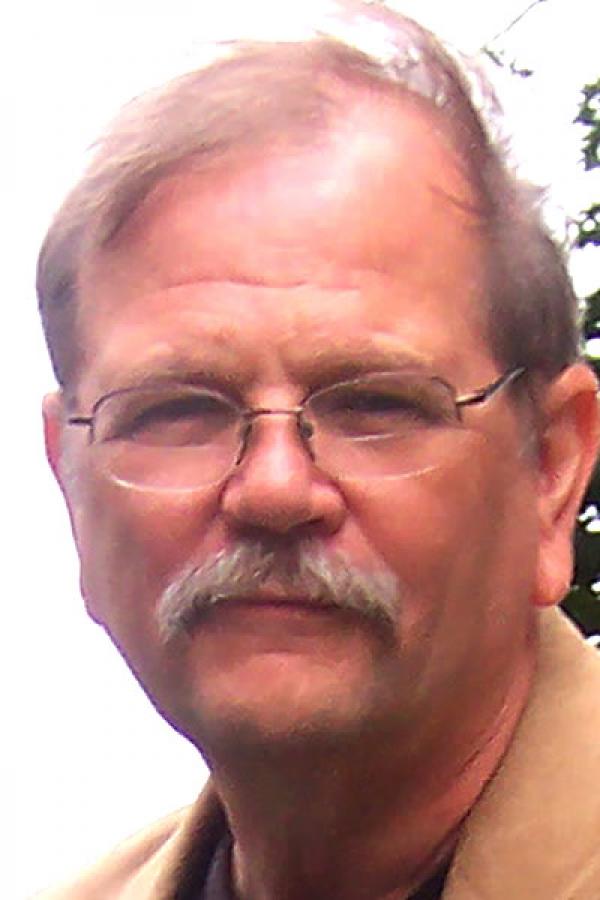Samuel Green

Photo by Sean McDowell
Bio
Samuel Green was raised in the fishing and mill town of Anacortes, Washington. After four years in the military, including service in Antarctica and South Vietnam, he earned a BA from Highline Community College and an MA from Western Washington University. A 30-year veteran of the Poetry-in-the-Schools program, he has taught in hundreds of classrooms. He has also taught at Southern Utah University, Western Wyoming Community College, and served six terms as Distinguished Visiting Northwest Writer at Seattle University. His poems have appeared in hundreds of journals, including Poetry, Poetry Northwest, Poet & Critic, Poetry East, Southern Poetry Review, Prairie Schooner, and Puerto del Sol. Among his ten collections of poems are Vertebrae: Poems 1972-1994 (Eastern Washington University Press, 1994) and The Grace of Necessity (Carnegie-Mellon University Press, 2008), which won the 2008 Washington State Book Award for Poetry. He has lived for 26 years off the grid on remote Waldron Island off the Washington coast in a log house he built himself, and is, with his wife, Sally, co-editor of Brooding Heron Press. In December, 2007, he was named Washington's first poet laureate.
Author's Statement
When I was in my 20s and 30s, I paid only desultory attention to how I spent my time. It seemed I had a chest full of currency, the various-sized coins that represented minutes, hours, days, the large heavy ones of years. Even though I reached blindly into the chest, and so could not see how much was there, it still seemed like a lot. Yesterday I turned 60. I'm well aware now that when I reach into the chest, I can feel the wooden bottom of it in places, and I'm more and more selfish with how I spend that time. Even so, some of it has been beyond my immediate control. For the past 26 years, nearly all of our small income has come, in one guise or another, from poetry: teaching, readings, the sale of books from our own small press publishing enterprise. The bulk of that has taken me away more and more from the small island on which we live, and where I've learned the lessons about community, right work, and the value of place that have helped me shape my poems. As the first poet laureate of my home state of Washington this past year, I've spent only 90 days so far in my own bed since January. It's been a joy, this chance to speak about what I love, and I've learned to write in whatever small cracks of time present themselves, working over lines in my head on long drives, jotting down notes between classes of elementary kids, or on napkins in yet another restaurant. Still, it's slow as the time until recess. I hope I have a few more books in me, at least. Thanks to the NEA, I'll have the chance to work more or less uninterrupted for six months to a year, for which I am beyond grateful.
GRANDMOTHER, CLEANING RABBITS
I shot this one by the upper pond of the farm
after watching the rings trout made rising
to flies, watching small birds pace the backs
of cows, hoping all the time she would run.
My grandmother told me they damaged her garden.
I think it was a way to make the killing
lighter. She never let me clean them, only asked
I bring them headless to her. I bring this one
to the fir block near the house, use the single-
bitted axe with the nick in the lower crescent
of the blade, smell the slow fire
in the smoke-house, salmon changing
to something sweet & dark. A fly turns
in a bead of blood on my boot. I tuck
the head in a hole beside the dusty globes
of ripened currants, talk quiet to the barn cat.
In her kitchen my grandmother whets the thin blade
of her Barlow, makes a series of quick, clever cuts, then tugs
off the skin like a child's sweater. This one was
pregnant. She pulls out a row of unborn rabbits
like the sleeve of a shirt with a series of knots.
The offal is dropped in a bucket. Each joint gives way
beneath her knife as though it wants
to come undone, as though she knows some secret
about how things fit together. I have killed
a hundred rabbits since I was eight.
This will be the last.
I am twenty, & about to go back
to the war that killed my cousin in Kin Hoa,
which is one more name she can't pronounce.
I haven't told her about the dead,
and she won't ask. She rolls the meat
in flour & pepper & salt, & lays it
in a skillet of oil that spits like a cat.
She cannot save a single boy who carries a gun.
All she can do is feed this one.

